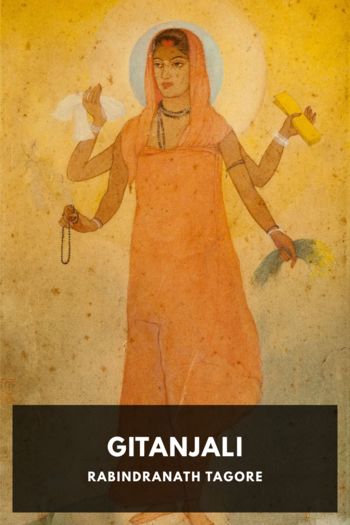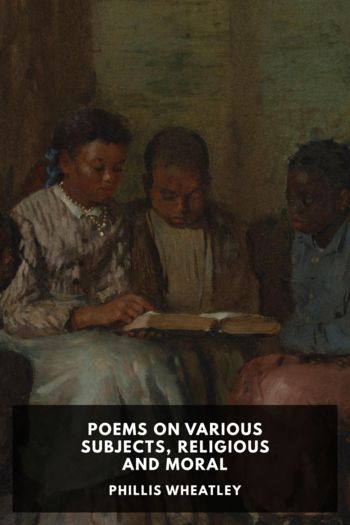My Reminiscences by Rabindranath Tagore (free children's ebooks pdf .TXT) 📕

- Author: Rabindranath Tagore
Book online «My Reminiscences by Rabindranath Tagore (free children's ebooks pdf .TXT) 📕». Author Rabindranath Tagore
The Hindu Mela was an annual fair which had been instituted with the assistance of our house. Babu Nabagopal Mitter was appointed its manager. This was perhaps the first attempt at a reverential realisation of India as our motherland. My second brother’s popular national anthem “Bharater Jaya,” was composed, then. The singing of songs glorifying the motherland, the recitation of poems of the love of country, the exhibition of indigenous arts and crafts and the encouragement of national talent and skill were the features of this Mela.
On the occasion of Lord Curzon’s Delhi durbar I wrote a prose-paper—at the time of Lord Lytton’s it was a poem. The British Government of those days feared the Russians it is true, but not the pen of a fourteen-year-old poet. So, though my poem lacked none of the fiery sentiments appropriate to my age, there were no signs of any consternation in the ranks of the authorities from Commander-in-Chief down to Commissioner of Police. Nor did any lachrymose letter in the Times predict a speedy downfall of the Empire for this apathy of its local guardians. I recited my poem under a tree at the Hindu Mela and one of my hearers was Nabin Sen, the poet. He reminded me of this after I had grown up.
My fourth brother, Jyotirindra, was responsible for a political association of which old Rajnarain Bose was the president. It held its sittings in a tumbledown building in an obscure Calcutta lane. Its proceedings were enshrouded in mystery. This mystery was its only claim to be awe-inspiring, for as a matter of fact there was nothing in our deliberations or doings of which government or people need have been afraid. The rest of our family had no idea where we were spending our afternoons. Our front door would be locked, the meeting room in darkness, the watchword a Vedic mantra, our talk in whispers. These alone provided us with enough of a thrill, and we wanted nothing more. Mere child as I was, I also was a member. We surrounded ourselves with such an atmosphere of pure frenzy that we always seemed to be soaring aloft on the wings of our enthusiasm. Of bashfulness, diffidence or fear we had none, our main object being to bask in the heat of our own fervour.
Bravery may sometimes have its drawbacks; but it has always maintained a deep hold on the reverence of mankind. In the literature of all countries we find an unflagging endeavour to keep alive this reverence. So in whatever state a particular set of men in a particular locality may be, they cannot escape the constant impact of these stimulating shocks. We had to be content with responding to such shocks, as best we could, by letting loose our imagination, coming together, talking tall and singing fervently.
There can be no doubt that closing up all outlets and barring all openings to a faculty so deep-seated in the nature of man, and moreover so prized by him, creates an unnatural condition favourable to degenerate activity. It is not enough to keep open only the avenues to clerical employment in any comprehensive scheme of Imperial Government—if no road be left for adventurous daring the soul of man will pine for deliverance, and secret passages still be sought, of which the pathways are tortuous and the end unthinkable. I firmly believe that if in those days Government had paraded a frightfulness born of suspicion, then the comedy which the youthful members of this association had been at might have turned into grim tragedy. The play, however, is over, not a brick of Fort-William is any the worse, and we are now smiling at its memory.
My brother Jyotirindra began to busy himself with a national costume for all India, and submitted various designs to the association. The Dhoti was not deemed businesslike; trousers were too foreign; so he hit upon a compromise which considerably detracted from the dhoti while failing to improve the trousers. That is to say, the trousers were decorated with the addition of a false dhoti-fold in front and behind. The fearsome thing that resulted from combining a turban with a sola-topee our most enthusiastic member would not have had the temerity to call ornamental. No person of ordinary courage could have dared it, but my brother unflinchingly wore the complete suit in broad daylight, passing through the house of an afternoon to the carriage waiting outside, indifferent alike to the stare of relation or friend, doorkeeper or coachman. There may be many a brave Indian ready to die for his country, but there are but few, I am sure, who even for the good of the nation would face the public streets in such pan-Indian garb.
Every Sunday my brother would get up a shikar party. Many of those who joined in it, uninvited, we did not even know. There was a carpenter, a smith and others from all ranks of society. Bloodshed was the only thing lacking in this shikar, at least I cannot recall any. Its other appendages were so abundant and satisfying that we felt the absence of dead or wounded game to be a trifling circumstance of no account. As we were out from early morning, my sister-in-law furnished us with a





Comments (0)